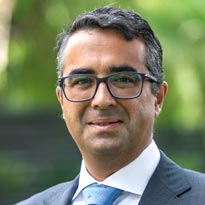Shareholders’ Role and Responsibilities in Times of Corporate Disruptions
IESE Madrid - March 31, 2025
Monday, March 31, 2025
9:30-9:45 Welcome & Introduction
Marco Becht, Université libre de Bruxelles and ECGI
Jordi Canals, IESE Business School
9:45-10:30 Session 1
Shareholders, corporate purpose and sustainability
Speaker: Colin Mayer, Oxford University (presentation)
Discussant: Fabrizio Ferraro, IESE Business School (presentation)
Moderator: Africa Ariño, IESE Business School
10:30-11:15 Session 2
Public pension funds in corporate governance
Speaker: Jill E. Fisch, University of Pennsylvania (presentation & paper)
Discussant: Amir Licht, Reichman University (presentation)
Moderator: Miguel Antón, IESE Business School
11:15-11:45 Coffee Break
11:45-12:30 Session 3
Who cares about diversity?
Speaker: Luc Renneboog, Tilburg University (presentation)
Discussant: Pascual Berrone, IESE Business School (presentation)
Moderator: Núria Mas, IESE Business School
12:30-13:15 Session 4
Shareholders’ coalition for climate solutions: Is there a case for competition policy?
Speaker: Xavier Vives, IESE Business School (presentation)
Discussant: Giacinta Cestone, Bayes Business School (presentation)
Moderator: Herman Daems, IESE Business School
13:15-15:00 Lunch
15:00-15:45 Session 5
What do we know about institutional shareholders impact on governance and sustainability?
Speaker: Mireia Giné, IESE Business School (presentation)
Discussant: Jordi Gual, IESE Business School
Moderator: Miguel Duro, IESE Business School
15:45-16:30 Session 6
Shareholders and divestment decisions
Speaker: Marco Becht, Université libre de Bruxelles and ECGI (presentation & paper)
Discussant: Gaizka Ormazabal, IESE Business School (presentation)
Moderator: Nuno Fernandes, IESE Business School
16:30-17:00 Coffee Break
17:00-18:00 CEOs’ Panel
Boards of directors and shareholders in corporate transformation
Rosa García, Exolum, Chairperson
Janina Kugel, Kyndryl, TUI and Swissport, Board Member
Emmanuel Lagarrigue, KKR, Partner
Juvencio Maeztu, Ingka Ikea, Deputy CEO
Eloi Planes, Fluidra, Chairperson
Moderator: Jordi Canals, IESE Business School
18:00-18:15 Wrap Up
Marco Becht, Université libre de Bruxelles and ECGI
Jordi Canals, IESE Business School
IESE and ECGI are pleased to invite you to the 2025 Corporate Governance Conference on the Shareholders’ Role and Responsibilities in Times of Corporate Disruptions that will take place on March 31, 2025, at the IESE Madrid campus.
Conference highlights
Corporate governance and boards of directors are experiencing increasing complexity and uncertainty in a world of major geopolitical, technological, climate and social disruption. This one-day conference will feature six sessions by leading scholars, who will share the latest research and practical insights on these relevant topics:
• The nature and impact of different types of shareholders (i.e. institutional shareholders, pension funds, family offices, private equity) on governance effectiveness.
• The impact of different types of shareholders on helping companies deal with significant disruptions such as technology, sustainability and polarization.
• The effects of different types of shareholders on board structure, composition and long-term strategic decisions in an uncertain business context.
• The changing preferences of different types of investors on financial value creation and social value when there are trade-offs.
• Board engagement with different types of shareholders.
Finally, a panel discussion with distinguished board members will provide insightful knowledge on the role of boards of directors and shareholders in promoting better governance and contributing to the firm’s ongoing transformation.
Delving into the conference theme
Corporate governance research and regulation have widely assumed that boards should maximize shareholder value and protect shareholders’ economic returns as their top priority. Recently, this view has been challenged in several ways.
First, companies are facing more disruptive economic and social environments. As a result, boards and management teams must govern and manage firms in a way that creates sustainable value.
In many cases, achieving this goal requires major, long-term investments in areas such as decarbonization, developing more resilient global supply chains and deploying artificial intelligence. In facing these decisions, boards will need to gain shareholders’ support and ensure alignment with these policies. The nature of these investments also involves a different mix of risk, return and time horizons.
The second challenge is that regulators, investors, and public opinion are advocating for important climate and social goals, in some cases, without a clear material connection to the firm. Notably, the increasing role of investors in supporting environmental and social objectives, whose impact on financial performance may not be immediately positive, is a relatively new development. Several central questions affecting shareholders need to be addressed: Should shareholders support pro-social policies, such as sustainability, beyond their material impact? Should shareholders pursue financial returns and decide afterwards the social causes they want to support? Do companies that adopt purpose or pro-social policies do better financially?
The third challenge centers on the trade-off between short-term and long-term value creation, defining these different time horizons and understanding the implications they have for company valuation. This trade-off is acute in decarbonization decisions or reconfiguring the global value chain. The responsibilities of shareholders in confirming the time horizon are indispensable.
Along with these challenges, several positive changes are taking place in corporate governance.
The first is that many family-controlled firms are adopting international governance practices initially introduced by listed firms. In this respect, with additional disclosure and adoption of best corporate governance practices, family firms seem committed to improving corporate governance. This is particularly relevant since investor families are the most important group of corporate owners in the world.
The second change is large institutional investors’ growing awareness of the need to constructively engage with boards of directors to help improve the long-term value creation process through better governance. The notion of stewardship adopted by some institutional investors is a very promising avenue for improving the relationship between shareholders and boards of directors.
The third change is that private equity firms are adopting a more pragmatic mindset to help companies manage different transitions and transformation, including those related to sustainability, digital and AI. This is particularly significant because private equity firms have become a major category of shareholders.
This IESE-ECGI conference will explore the different perspectives, goals and strategies of diverse types of shareholders, in relation to the investments that companies need to consider for tackling major disruptions. When making decisions, shareholders need to consider the goals they pursue, expectations they have about the companies they invest in and the specific adoption of corporate governance mechanisms to monitor management and be forces of change.
In the end, responsible shareholders can generate long-term value sustainably, becoming stakeholders that not only care about their investments, but also about the companies they invest in and their impact on society.
March 31, 2025
 |
 |
The IESE Center for Corporate Governance and the European Corporate Governance Institute bring senior academics and thought-leaders in business to discuss relevant corporate governance topics through conferences.
With the support of the:





























